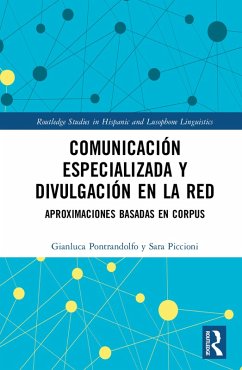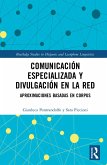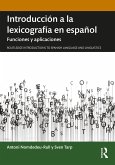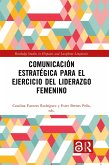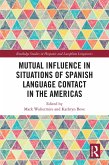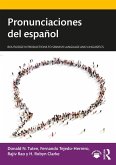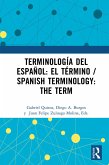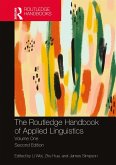Dieser Download kann aus rechtlichen Gründen nur mit Rechnungsadresse in A, B, BG, CY, CZ, D, DK, EW, E, FIN, F, GR, HR, H, IRL, I, LT, L, LR, M, NL, PL, P, R, S, SLO, SK ausgeliefert werden.
Guiomar Elena Ciapuscio (Universidad de Buenos Aires - CONICET, Argentina)
'Se ofrecen en este libro respuestas magníficamente fundamentadas en datos a preguntas relevantes sobre formas actuales de comunicación divulgativa en la red. Sus autores analizan, cuantitativa y cualitativamente, estrategias discursivas de la divulgación en Internet comparándolas con las de la comunicación especializada, en el marco de los Estudios del discurso asistidos por corpus (EDAC; Corpus-Assisted Discourse Studies CADS, en inglés). Es una novedad -y un regalo- el corpus de análisis, WebLesp (Corpus de comunicación digital especializada en español), formado por géneros de discurso especializado y de divulgación. Otro gran acierto es la selección de los ámbitos específicos de este corpus, de interés tanto científico como social, al afectar a las vidas íntimas de las personas: los cuatro estudios de caso abordan en la web la comunicación 1) médica, 2) jurídica, 3) sobre macroeconomía española y 4) sobre el cambio climático. La copiosa información sobre los géneros analizados en cada ámbito constituye una valiosa fuente de inspiración para futuras investigaciones. El corpus WebLesp queda así a disposición de todos para avanzar en el necesario conocimiento de las variadas formas de comunicación digital.'
Carmen López Ferrero (Universitat Pompeu Fabra, Barcelona, España)
'One salient feature of the digital age is the need for specialists to communicate with increasingly diverse audiences, which may mean renegotiating the terms on which they share their expert knowledge with other members of society, or even redefining the very bases on which their authority is constructed. This volume provides a much-needed exploration of popularisation discourses in Spanish, revisiting the theoretical transition from straightforward reformulation to the more complex notion of recontextualisation, a process with both cognitive and communicative dimensions involving interaction with a wide range of participants. Relying on advances in corpus linguistics, the fascinating case studies presented in this book draw on data from the WebLesp corpus to shed light on metaphor in healthcare, polyphony in legal texts, communicative strategies in popular macroeconomics, and interpretative framing in popular writing on climate change.'
Ruth Breeze (ICS, Universidad de Navarra, España)
'Este es un libro excelente e innovador, que proporciona al lector una mejor comprensión de los discursos especializados y de los discursos de divulgación en Internet. A partir de datos empíricos -cuantitativos- de un corpus multidisciplinar de textos web en español, los autores profundizan en aspectos clave de discursos especializados en entornos web. El libro ofrece importantes perspectivas sobre el uso de estrategias discursivas utilizadas para transformar el conocimiento especializado (de los campos de la medicina, el derecho, la macroeconomía y las ciencias ambientales) en textos de divulgación con el fin de llegar al público amplio, y no necesariamente experto, en Internet. Una contribución muy necesaria en el ámbito de la investigación actual sobre lingüística hispánica, tanto teórica como aplicada.'
Carmen Pérez-Llantada (Universidad de Zaragoza, España)
'This volume responds to the growing interest in the ways in which experts and institutions convey specialised knowledge to ever larger audiences in the digital medium in four different fields (medicine, law, economics, climate change). The research presented is innovative in at least two respects. First, the case studies illustrated shed new light on popularisation as recontextualised discourse, one where the communication of expert knowledge combines and fulfils a number of interrelated functions, from informing the public and their actions to empowering citizens while promoting the role of science and research in society. Second, they offer a methodological toolkit for corpus-based discourse analysis which - combined with the freely-available WebLesp corpus of LSP communication in Spanish - will hopefully inspire further work in this important field of linguistic research.'
Patrick Goethals (Ghent University, Belgium)

